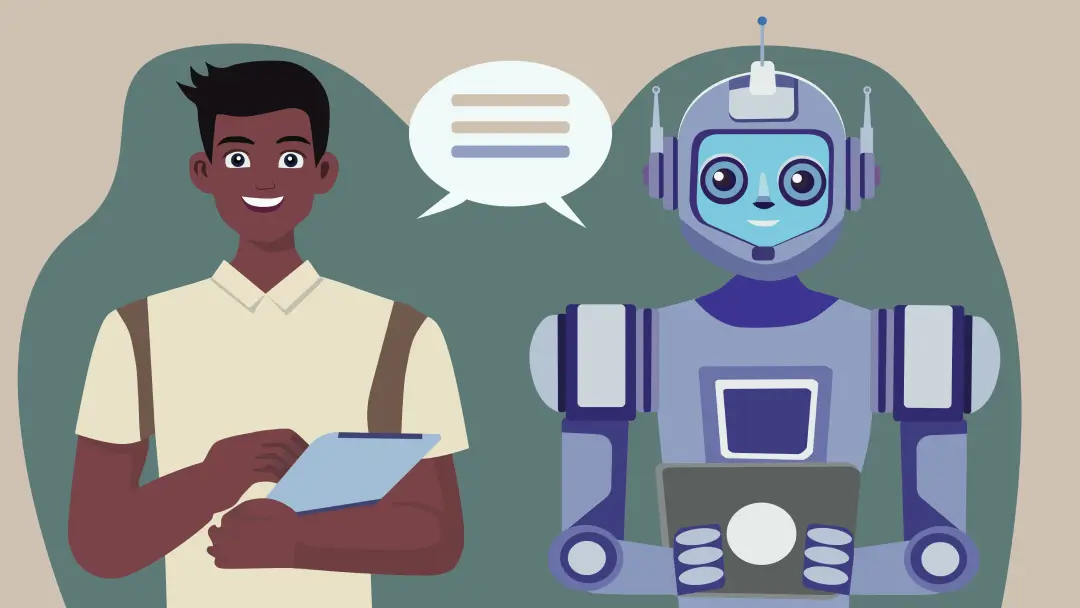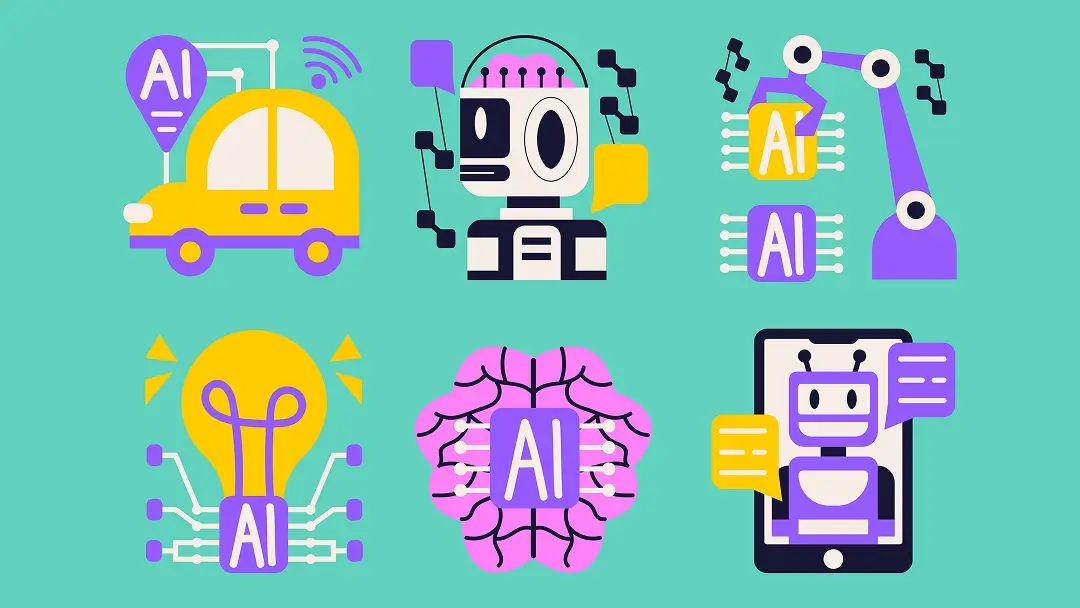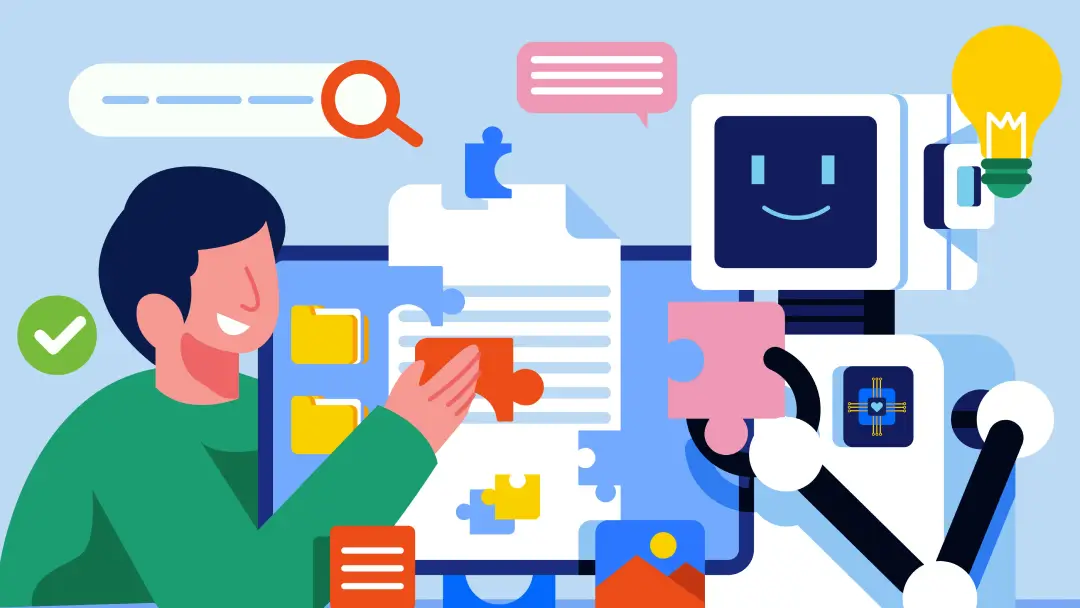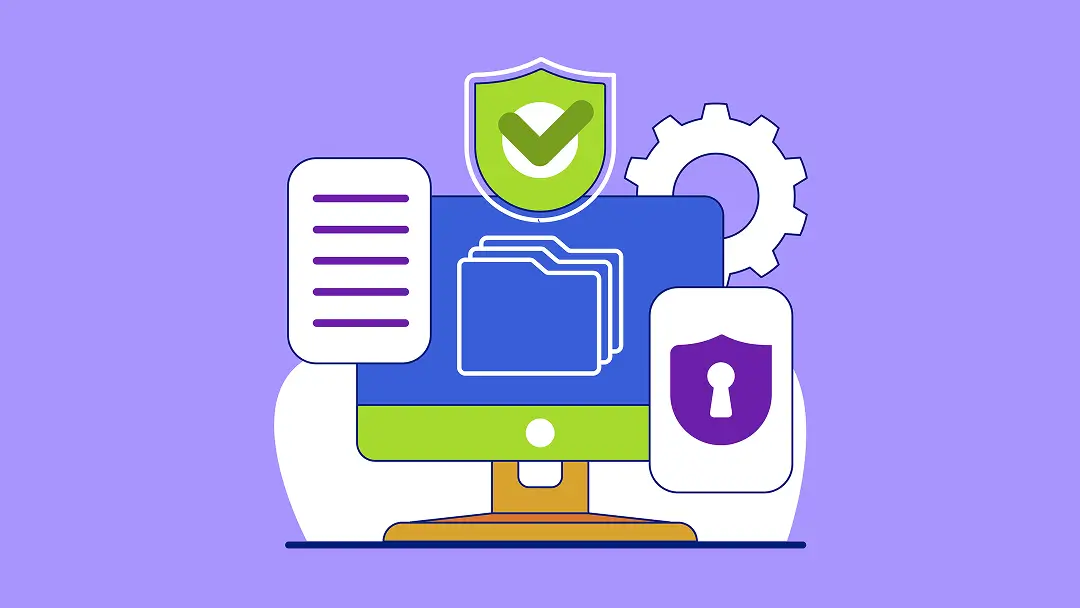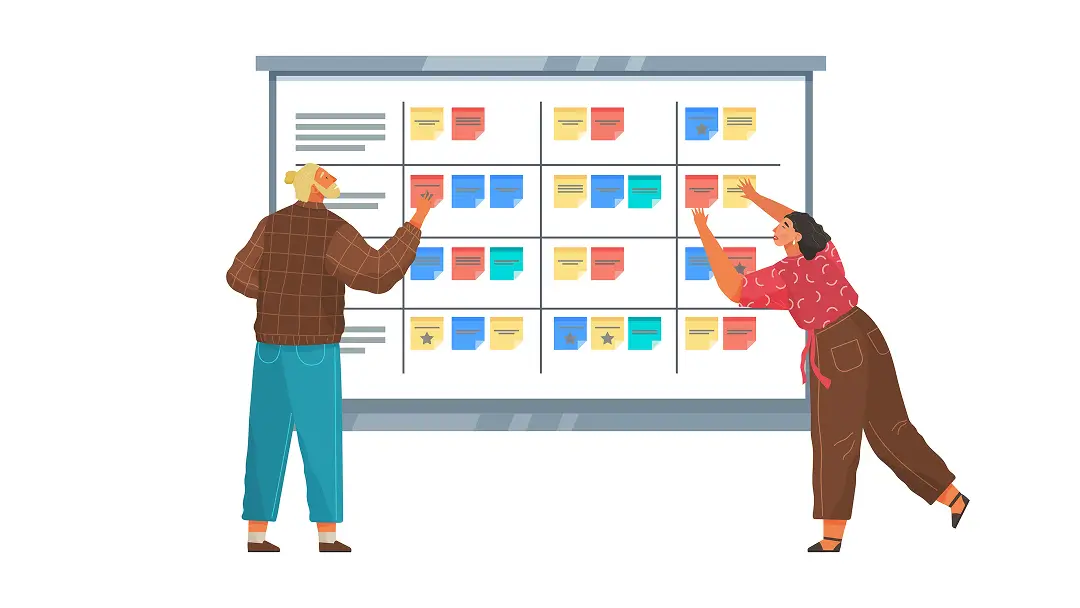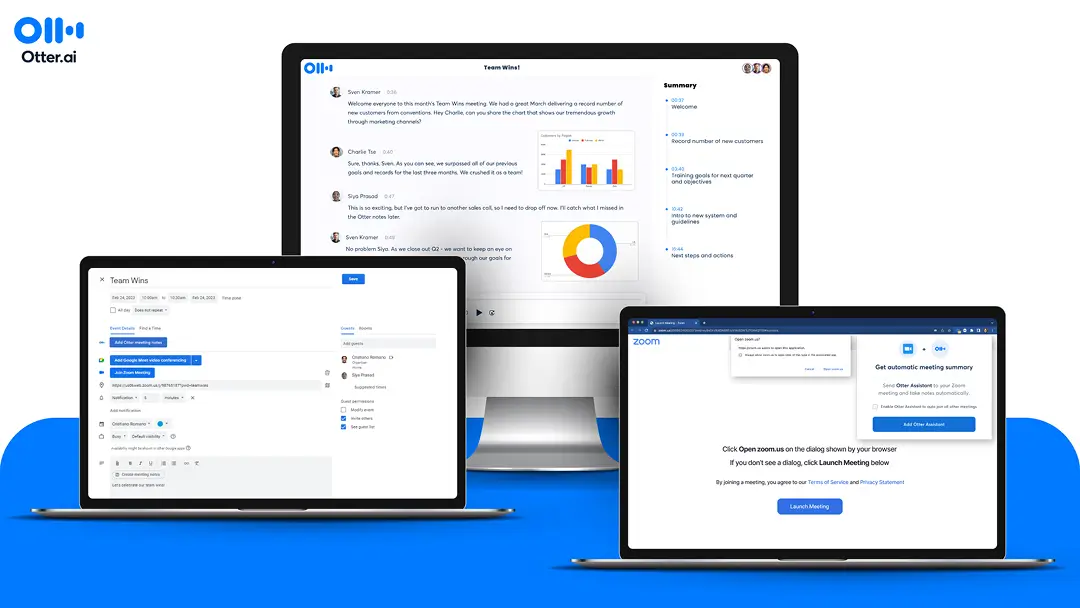AI in Marketing: The Ultimate Guide (With Examples)
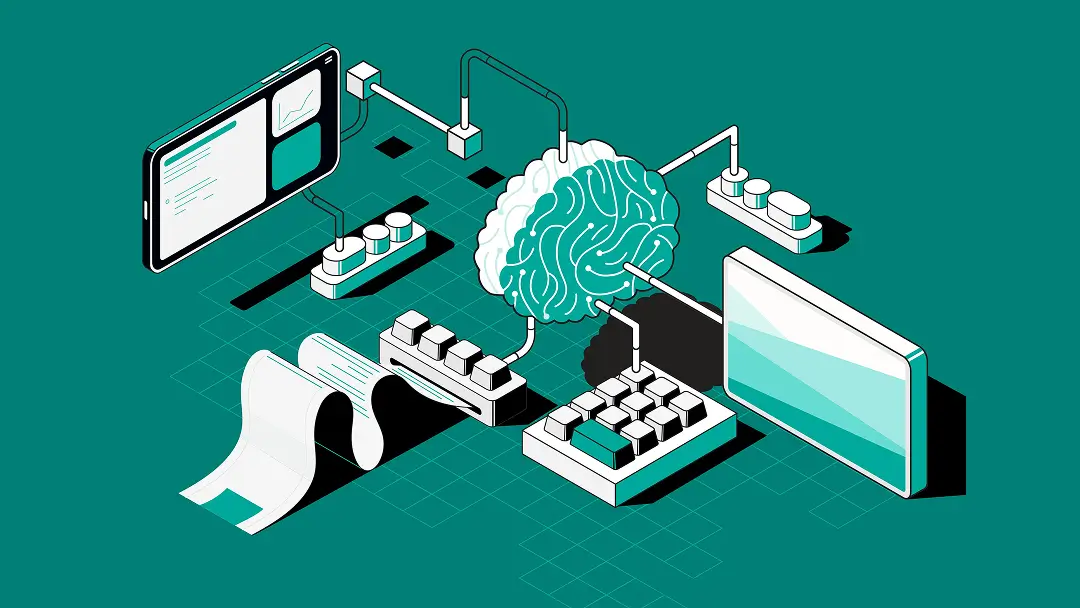
The future of any technology is uncertain. But one thing’s clear: AI is shaping the marketing landscape in ways we never imagined possible. From chatbots that provide personalized customer experiences to data-driven campaigns, using AI in your marketing strategy is a game-changer.
Whether you’re curious about automating routine tasks or leveraging machine learning to predict consumer behavior, the power of AI marketing tools can enhance your reach. Here’s how.
How to use AI in marketing: 7 use cases
AI-powered tools streamline marketing strategies and transform how brands connect with their audiences. That’s why so many marketing teams use Otter to increase their productivity. Let’s explore seven examples of AI that illustrate how your team can enhance efficiency and drive engagement:
1. Content creation
For many content creators, half of the creative process is staring at a blank screen, waiting for an idea to strike. But natural language processing (NLP) and generative AI tools can significantly speed up content creation.
Input a marketing or advertising brief, and AI tools can generate relevant and engaging material based on that information. Whether you need help brainstorming ideas or writing pages of copy, AI tools sit in as creative virtual assistants. Marketers can use AI tools as a foundation for all types of content creation, including SEO blog posts, social media updates, and product descriptions.
Otter’s AI Chat feature is one great example of this. While Otter automatically takes meeting notes for you - ask Otter AI Chat to generate meeting-specific content to turn that meeting into action. Using the meeting as an AI language model, Otter AI Chat can dissect the meeting content to instantly deliver action items, summaries, follow-up.This saves time and supports consistent content flow, helping brands stay relevant and connect to their audiences.
2. Customer support
Customer support can feel like an eternal cycle of inquiries, often stretching teams thin. And for many brands, limited budgets make it hard to provide comprehensive support with human agents.
AI-powered chatbots offer valuable assistance. They use machine learning and NLP technologies to provide instant responses to frequently asked questions and common issues. These virtual chatbots work around the clock so your customers get the personalized attention they need when they need it.
Likewise, AI chatbots can sort customer inquiries for you, separating simple questions from complex issues that require a human agent. This streamlines the customer support pipeline and enhances customer satisfaction, giving your customers timely answers while freeing up your team to tackle more nuanced problems.
3. Data-driven insights
Data is like currency. The more details you have about your audience, the more powerful your marketing efforts become. But in a world drowning in data, making sense of it all can be daunting — even for seasoned marketers.
AI-generated data analysis uses sophisticated algorithms to eliminate guesswork, uncovering trends and patterns that inform your AI marketing strategy. Ask Otter AI Chat to put together a marketing plan based on all your team calls. With those actionable insights and recommendations, you can refine your messaging and make decisions that drive engagement and conversions.
4. Task automation
For marketing teams, tasks like generating performance reports and scheduling social media posts take up time and mental energy. Juggling so many repetitive tasks and important workflows makes it hard to prioritize work and take advantage of time-sensitive opportunities.
Otterautomates marketing meeting tasks before - summarizing each of your meetings and collating action items discussed in one place to save you time throughout the process. Transcribe discussions and identify key topics in real time — and streamline the follow-up later. Otter frees up valuable time to focus on strategy and deep collaboration.
5. Predictive analytics
Predictive analytics is like a crystal ball for your marketing strategy. It uses AI to analyze historical data and forecast future trends and customer behaviors, helping you anticipate needs before they arise.
Here’s an example. AI can alert retail marketers to peak shopping periods or shifts in consumer preferences, giving them the information they need to build digital marketing strategies proactively. This forward-thinking approach keeps teams ahead of the competition and lets them meet the target audience’s changing expectations.
6. Social media monitoring
AI-powered social media monitoring tools analyze conversations and sentiment around your brand, providing real-time insights that inform your marketing strategy and keep you ahead of the curve.
By tracking mentions, hashtags, and overall sentiment, you can respond proactively to customer feedback and adjust your messaging to what strikes a chord. AI tools also help you identify larger cultural and industry trends, allowing your brand to insert itself into broader conversations — and hopefully create viral content.
7. Personalized recommendations
Your consumers are bombarded with choices. Personalized recommendations can make sure they choose your product.
AI-powered recommendation engines are a marketer’s key to conversion. They analyze user behavior, preferences, and past interactions to optimize the customer experience, suggesting products or content tailored to individual consumers. For example, e-commerce platforms use AI to track browsing history and purchasing patterns, suggesting your product to the people most likely to buy.
5 challenges of using AI in marketing
Like any other new and evolving technology, AI marketing tools have their fair share of challenges. As you adjust your strategies to incorporate AI, be aware of potential hurdles to successful marketing campaigns. Here are five key challenges to know:
- Privacy regulations: Many companies depend on personal information to develop effective AI algorithms. Although comprehensive federal legislation hasn’t fully caught up with evolving tech, many states and local governments have laws that limit potential discrimination or privacy breaches. Stay up-to-date on AI compliance and make sure your team uses customer data for AI-driven insights responsibly.
- Onboarding: Although AI-powered tools enhance your workflow, they’re still confusing. Demos, hands-on workshops, and accessible documentation can help your team use AI tools to their greatest potential without getting lost in the tech.
- Data quality: AI marketing tools rely on data inputs to function effectively. Incomplete, outdated, or biased data generates insights that can be misleading and inaccurate. On top of that, poor AI interpretation can distort even high-quality information. You need to invest time and resources into inputting quality data and perform due diligence to make sure your outputs are accurate.
- Over-reliance: Poor data quality and analytics aren’t the only limitations. Relying too heavily on AI without human oversight can lead to missed opportunities for authentic ads and marketing campaigns. Treat AI technology like a virtual assistant instead of a replacement, propelling human intuition and creativity to build more successful strategies and customer experiences.
- Integration: Many businesses have personalized workflows that are hard to adjust. But introducing AI-powered tools should enhance your routine, not disrupt it. Before adopting AI for marketing, make sure that new tools can communicate with your legacy systems. Otherwise, you risk data silos and a frustrating user experience for your team.
AI in marketing: A glimpse into the future
What is AI marketing's role in shaping the industry's future? As we look ahead, AI is poised to transform how brands engage with consumers and optimize marketing strategies — with a big emphasis on “optimize.”
There are big debates around AI in marketing and its impact on creativity, work quality, and job availability. Like any new, disruptive technologies, it's normal for marketers to have these concerns. But AI and machine learning technologies are meant to complement human capabilities, not replace them.
Rather than stifling creativity, generative AI can enhance digital marketing by working side by side with humans. It can offer data-driven suggestions and insights that inspire innovative marketing campaigns, empowering people to craft more personalized and relevant customer experiences. Some tools can give you a headstart on brainstorming or research to help in times of creative block. And as AI takes over rudimentary, routine tasks, marketers have more time to focus on their real jobs: building connections through their unique creativity.
Embrace the future with Otter.ai
AI marketing is here to stay. As your team navigates the changing digital landscape, leveraging the right AI meeting assistant keeps you from falling behind.
With Otter.ai, you can enhance your team’s productivity and automate tasks — both during meetings and after. Otter takes the hassle out of meeting notes, transcriptions, and follow-ups, helping your team focus on building meaningful marketing campaigns. Don’t let routine tasks slow you down. Try Otter and unlock your potential.




